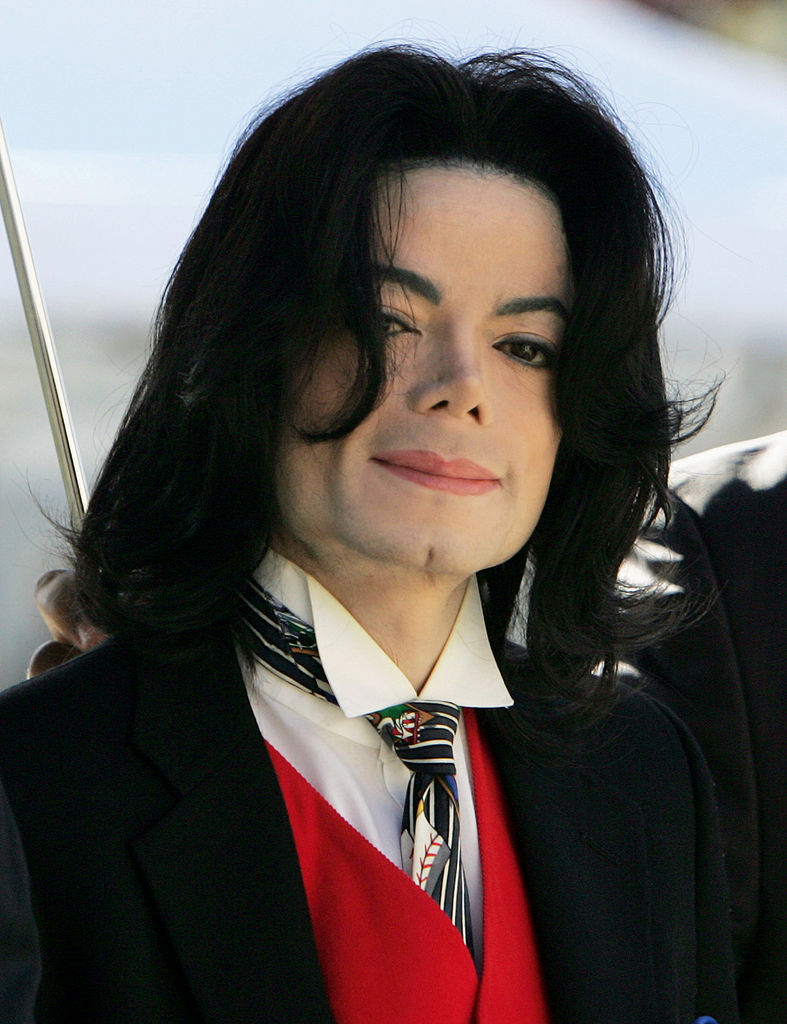Paris Jackson, the daughter of the legendary Michael Jackson, has recently addressed her racial identity, sparking conversations across the globe. As a 25-year-old actress and singer, Paris has faced scrutiny over her claim to identify as a Black woman. This declaration comes despite her lighter complexion, leading to widespread debate about race, identity, and the legacy of her famous father.

Paris-Michael Katherine Jackson was born in 1998 to Debbie Rowe and Michael Jackson, the King of Pop. Growing up as the only daughter of one of the most iconic figures in music history, Paris’s life has been anything but ordinary. Michael Jackson, who skyrocketed to fame in the 1960s with the Jackson 5, was not just a global superstar; he was also a devoted father who instilled a strong sense of identity in his children.
Michael Jackson, an African-American who began his career with a darker complexion, later developed Vitiligo, a condition that caused his skin to lighten over time. Despite this, Michael remained deeply connected to his roots, a sentiment he passed on to his children. Paris recalls her father pointing at her and saying, “You’re Black. Be proud of your roots.” This simple yet powerful message became a cornerstone of Paris’s identity.
In a world where racial identity is often scrutinized, Paris Jackson’s declaration of identifying as Black has not been without its challenges. Many have questioned how she can claim a Black identity given her lighter skin tone. However, Paris has stood firm in her beliefs, stating, “I consider myself Black,” and emphasizing the significance of her father’s teachings.
Paris has faced her fair share of criticism for her stance on her racial identity. In a candid interview with Rolling Stone, she expressed her frustration with the public’s skepticism. “Most people call me white and say that I resemble someone from Finland,” Paris acknowledged. Yet, she remains steadfast, explaining, “I just believe what [my father] told me. To my knowledge, he’s never lied to me.”
One of the key arguments Paris Jackson presents is the diversity within mixed-race families. She points to examples like Wentworth Miller, the Prison Break star who has a mixed-race father and a white mother, yet shares a similar complexion. Paris uses this to illustrate that skin color alone does not define one’s racial identity or heritage.

Michael Jackson’s influence on his daughter extends beyond just racial identity. Paris describes a childhood filled with love, education, and a sense of normalcy, despite the grandeur of their surroundings. Growing up on the Neverland Ranch, Paris and her siblings were grounded by their father’s rules and values, which included limited access to the amusement park rides and a strong emphasis on education.
Paris’s recollections of her childhood paint a picture of a life that was both extraordinary and relatable. While they lived on a 2,700-acre estate complete with a zoo and a movie theater, Paris insists that her upbringing was normal in many ways. “We had school every single day, and we had to be good. And if we were good, every other weekend or so, we could choose whether we were gonna go to the movie theater or see the animals or whatever,” she shared.

One of the most revealing aspects of Paris’s upbringing was the open-minded environment her father fostered. Paris recalls a moment from her childhood when she developed a crush on a female model featured on a magazine cover. Rather than reacting with anger or disapproval, Michael Jackson playfully teased her, saying, “Oh, you got yourself a girlfriend.” This anecdote highlights Michael’s commitment to raising his children with love, acceptance, and an emphasis on education.
Despite Paris’s confidence in her identity, the public’s perception has often been at odds with her own beliefs. The scrutiny she faces highlights the complexities of racial identity in today’s society, where people are quick to judge based on appearances rather than understanding the deeper cultural and familial ties that shape a person’s identity.
Paris Jackson’s story is one of resilience and self-assurance. She has consistently stood by her father’s teachings and the identity he helped her cultivate. “He is my father. He will always be my father. He never wasn’t, and he never will not be,” Paris stated emphatically. Her words reflect a deep sense of loyalty and pride in her heritage, despite the challenges that come with being the daughter of such a public figure.

Paris Jackson’s experience sheds light on the ongoing debate about race and identity in modern society. Her story challenges conventional notions of race, urging people to consider the complexity and nuance involved in how individuals identify themselves. It also underscores the importance of respecting each person’s self-identification, particularly in a world that often seeks to categorize people based on superficial traits.
Paris Jackson’s journey is a testament to the power of self-acceptance and the influence of a parent’s love and guidance. Despite facing criticism, Paris remains true to herself and her father’s legacy, embracing her identity with pride. Her story is a reminder that identity is deeply personal and cannot be easily defined by others. In a world where race and identity continue to be contentious topics, Paris’s experience offers valuable insights into the importance of understanding and respecting each person’s unique journey.


